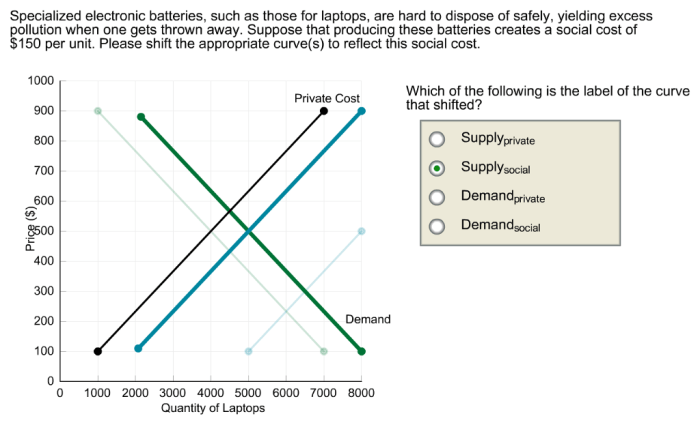Specialized electronic batteries such as those for laptops – Specialized electronic batteries, such as those designed for laptops, play a crucial role in powering our portable computing devices. These batteries are meticulously engineered to meet the unique demands of laptops, offering a delicate balance of capacity, longevity, and performance.
Delving into the intricacies of specialized electronic batteries for laptops, this comprehensive guide unveils the various types available, their distinct advantages and drawbacks, and the essential factors to consider when selecting the ideal battery for your specific needs.
Types of Specialized Electronic Batteries for Laptops

Specialized electronic batteries designed for laptops come in various types, each with unique characteristics and specifications. These batteries differ in terms of chemistry, capacity, voltage, and lifespan, among other factors. The most common types include:
- Lithium-ion (Li-ion):Li-ion batteries are widely used in laptops due to their high energy density, lightweight, and long lifespan. They offer a good balance of performance and affordability.
- Lithium-polymer (Li-Po):Li-Po batteries are similar to Li-ion batteries but have a different electrolyte composition. They are thinner and more flexible, allowing for more compact designs.
- Lead-acid:Lead-acid batteries are older technology and are less commonly used in laptops due to their heavier weight and shorter lifespan. However, they are still found in some budget-friendly models.
- Nickel-cadmium (Ni-Cd):Ni-Cd batteries have a long history of use in laptops and are known for their durability and resistance to overcharging. However, they have a lower energy density and a limited lifespan.
- Nickel-metal hydride (Ni-MH):Ni-MH batteries are an improved version of Ni-Cd batteries, offering higher energy density and a longer lifespan. They are also more environmentally friendly.
The table below compares the key features and specifications of these battery types:
| Battery Type | Chemistry | Capacity (mAh) | Voltage (V) | Lifespan (cycles) | Charging Time (hours) |
|---|---|---|---|---|---|
| Lithium-ion (Li-ion) | Li-ion | 2000-8000 | 3.6-4.2 | 300-500 | 2-4 |
| Lithium-polymer (Li-Po) | Li-Po | 2000-10000 | 3.6-4.2 | 500-1000 | 2-4 |
| Lead-acid | Lead-acid | 1000-4000 | 12 | 200-300 | 8-12 |
| Nickel-cadmium (Ni-Cd) | Ni-Cd | 1000-3000 | 1.2 | 500-1000 | 10-15 |
| Nickel-metal hydride (Ni-MH) | Ni-MH | 1500-4000 | 1.2 | 500-1000 | 6-10 |
Advantages and Disadvantages of Specialized Electronic Batteries: Specialized Electronic Batteries Such As Those For Laptops

Advantages:
- High energy density:Specialized electronic batteries for laptops offer a high energy density, allowing them to store more power in a smaller size and weight.
- Long lifespan:These batteries typically have a longer lifespan than traditional batteries, lasting for several years with proper care and maintenance.
- Lightweight:Specialized electronic batteries are lightweight, making them easy to carry around and ideal for portable devices like laptops.
- Fast charging:Many specialized electronic batteries support fast charging technology, allowing them to be charged quickly and efficiently.
Disadvantages:, Specialized electronic batteries such as those for laptops
- Cost:Specialized electronic batteries can be more expensive than traditional batteries.
- Limited availability:Some specialized electronic batteries may not be widely available, especially for older or less common laptop models.
- Safety concerns:Specialized electronic batteries can pose safety risks if not handled properly, as they contain flammable materials and can overheat or explode if damaged.
- Environmental impact:The production and disposal of specialized electronic batteries can have an environmental impact, especially for batteries containing heavy metals or toxic chemicals.
General Inquiries
What are the key factors to consider when choosing a specialized electronic battery for a laptop?
Battery capacity, voltage, lifespan, charging time, and compatibility with the laptop model are crucial factors to evaluate when selecting a specialized electronic battery.
How can I extend the lifespan of my specialized electronic battery?
Proper care and maintenance practices, such as avoiding extreme temperatures, optimizing charging cycles, and storing the battery at an appropriate charge level, can significantly prolong battery lifespan.
What are the common issues that may arise with specialized electronic batteries?
Battery drain, reduced capacity, and charging problems are common issues that may occur. Identifying the underlying causes and following troubleshooting procedures can help resolve these issues effectively.
